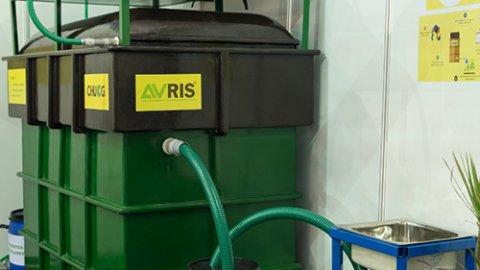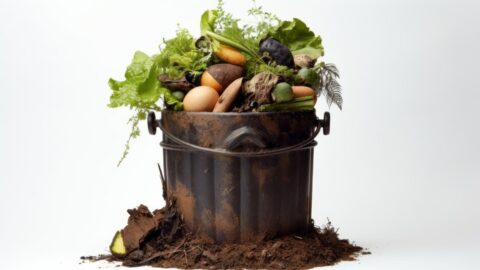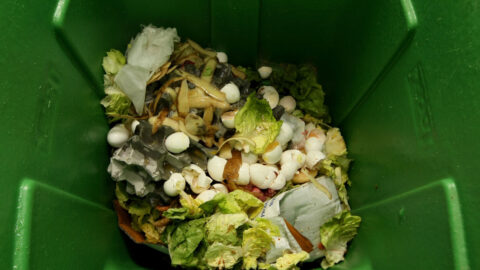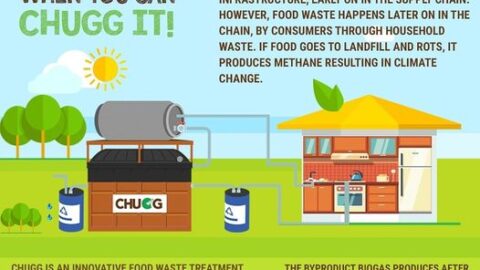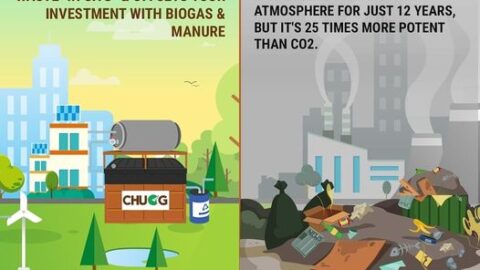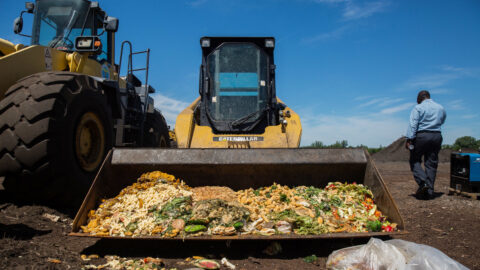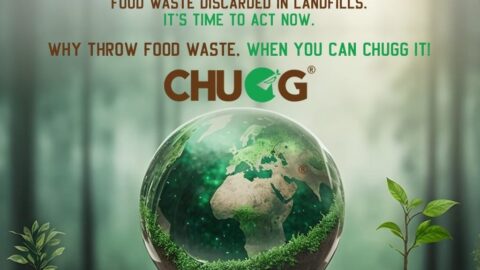Introduction
In the face of a rapidly changing climate, understanding the factors that contribute to global warming has become crucial. While discussions often revolve around carbon emissions from industrial activities and transportation, there’s a less-discussed but significant contributor hidden beneath our feet – food decomposition. In this article, we will explore the link between food decomposition and the climate crisis, shedding light on its impact and potential solutions.
The Scope of Food Decomposition
Food decomposition is a natural process that occurs when organic matter, such as food waste, breaks down into simpler compounds. It primarily happens in landfills, where oxygen levels are low, leading to anaerobic decomposition. This process produces methane, a potent greenhouse gas, which is approximately 28 times more effective at trapping heat than carbon dioxide over a 100-year period.
A list of a few common foods and their decomposition rates:
- Fruits and Vegetables: These organic materials decompose relatively quickly, usually within a few days to a few weeks, depending on their moisture content and environmental conditions.
- Bread and Bakery Products: These items typically break down within a couple of weeks.
- Dairy Products (Milk, Cheese): Dairy products can take several weeks to months to decompose, especially if they are in a sealed landfill.
- Meat and Fish: These protein-rich foods decompose slowly and can take several months to break down completely.
- Eggshells: Eggshells decompose relatively quickly, usually within a few weeks to a few months.
- Cooked Foods: Cooked foods, such as leftovers, can decompose within a few weeks, depending on their composition and moisture levels.
- Paper Products: While not food, paper products like napkins and food containers can decompose within a few weeks to a few months.
- Tea Bags and Coffee Grounds: These organic materials decompose relatively quickly, usually within a few weeks.
- Processed Foods (Chips, Snacks): Processed foods can take several months to decompose due to their preservatives and packaging.
It’s important to note that the decomposition rates can vary significantly based on environmental factors such as temperature, humidity, and the presence of oxygen. Proper waste management, such as composting and recycling, can help reduce the environmental impact of food decomposition.
The Alarming Rise of Food Waste
The scale of food waste is staggering. About one-third of all food produced for human consumption is lost or wasted annually, according to the Food and Agriculture Organization of the United Nations (FAO). This wastage not only represents a significant loss of resources but also contributes to a substantial increase in greenhouse gas emissions.
Methane – A Powerful Climate Culprit
Methane, released during food decomposition, is a significant contributor to climate change. As food waste decomposes in landfills without oxygen, methane is released into the atmosphere, where it traps heat and contributes to the greenhouse effect. The role of methane in global warming cannot be underestimated, and addressing food decomposition is an essential step in mitigating climate change.
The Ripple Effect on Climate
The consequences of food decomposition extend beyond the immediate production of methane. As temperatures rise due to global warming, extreme weather events become more frequent and severe. Floods, droughts, and hurricanes can disrupt food production and distribution, leading to even more waste and methane emissions.
Innovative Solutions to Tackle Food Decomposition
To combat the link between food decomposition and the climate crisis, several innovative solutions have emerged:
Reducing Food Waste at the Source
One of the most effective approaches is to reduce food waste at its source. Educating consumers, retailers, and restaurants about the importance of responsible consumption can significantly reduce the amount of food discarded.
Composting Organic Waste
Natural composting transforms organic waste into nutrient-rich soil. By composting food waste instead of sending it to landfills, methane emissions can be minimized, and valuable compost can be used to enrich agricultural lands.
Anaerobic Digestion
Anaerobic digestion is a process that occurs in the absence of oxygen, similar to food decomposition in landfills. However, this process is controlled, and the methane produced can be captured and used as a renewable energy source.
Food Recovery and Redistribution
Collaboration between food retailers, non-profit organizations, and local communities can lead to better food recovery and redistribution efforts. This ensures that edible food is not wasted and reaches those in need.
How CHUGG- food waste treatment system effectively combats the impact of food decomposition on climate change
The CHUGG – food waste treatment system, designed by Avris Tech, plays a crucial role in combating food decomposition and its impact on climate change. This innovative system employs advanced technology to address the challenges posed by food waste and its contribution to greenhouse gas emissions. Here’s how the CHUGG system works and its positive effects on mitigating climate change:
1. Efficient Food Waste Processing
The CHUGG system is engineered to efficiently process food waste. It is designed to handle various types of organic materials, including fruits, vegetables, cooked food, and even dairy and meat products. By rapidly breaking down food waste, CHUGG minimizes the time it takes for decomposition to occur, reducing the generation of methane, a potent greenhouse gas.
2. Anaerobic Digestion
The heart of the CHUGG system lies in its utilization of anaerobic digestion, a controlled biological process that occurs without the presence of oxygen. Unlike traditional landfills where food waste decomposes anaerobically, releasing methane into the atmosphere, the CHUGG system ensures that the decomposition process is contained and optimized.
3. Methane Capture and Utilization
As food waste decomposes within the CHUGG system, methane is released. However, instead of allowing this greenhouse gas to escape into the atmosphere, the CHUGG system captures and contains it. Methane can then be harnessed as a valuable renewable energy source, reducing the reliance on fossil fuels and further mitigating the effects of climate change.
4. Conversion to Biogas
The captured methane undergoes a transformation into biogas within the CHUGG system. Biogas is a clean, sustainable fuel that can be used to generate electricity, heat, or even power vehicles. By converting methane into biogas, the CHUGG system contributes to a more circular and eco-friendly approach to waste management, reducing greenhouse gas emissions.
5. Nutrient-Rich Byproduct
As the food waste is broken down, the CHUGG system also produces a nutrient-rich byproduct known as digestate. This material can be utilized as a high-quality organic fertilizer for agricultural purposes. Using digestate instead of synthetic fertilizers helps enhance soil health, promotes sustainable farming practices, and reduces the need for energy-intensive manufacturing processes associated with synthetic fertilizers.
6. Encouraging Responsible Consumption
The CHUGG system encourages responsible consumption by raising awareness about the environmental impact of food waste. By witnessing the transformation of food waste into useful resources like biogas and fertilizers, individuals and businesses become more conscious of their food disposal habits, leading to reduced waste generation and lower greenhouse gas emissions.
In conclusion, the CHUGG – food waste treatment system, developed by Avris Tech, is a powerful tool in combating food decomposition’s adverse effects on climate change. Through its efficient food waste processing, anaerobic digestion, methane capture, and utilization of biogas, CHUGG contributes to a more sustainable and eco-friendly approach to waste management. By harnessing the potential of food waste, the CHUGG system helps mitigate greenhouse gas emissions, conserve resources, and promote responsible environmental stewardship.
Conclusion
The heat beneath our feet, in the form of food decomposition, is an often-overlooked but critical contributor to the climate crisis. Addressing this issue through sustainable practices, responsible consumption, and innovative waste management solutions is vital in the fight against global warming. By reducing food waste and finding creative ways to repurpose organic matter, we can make a significant impact on the health of our planet.


